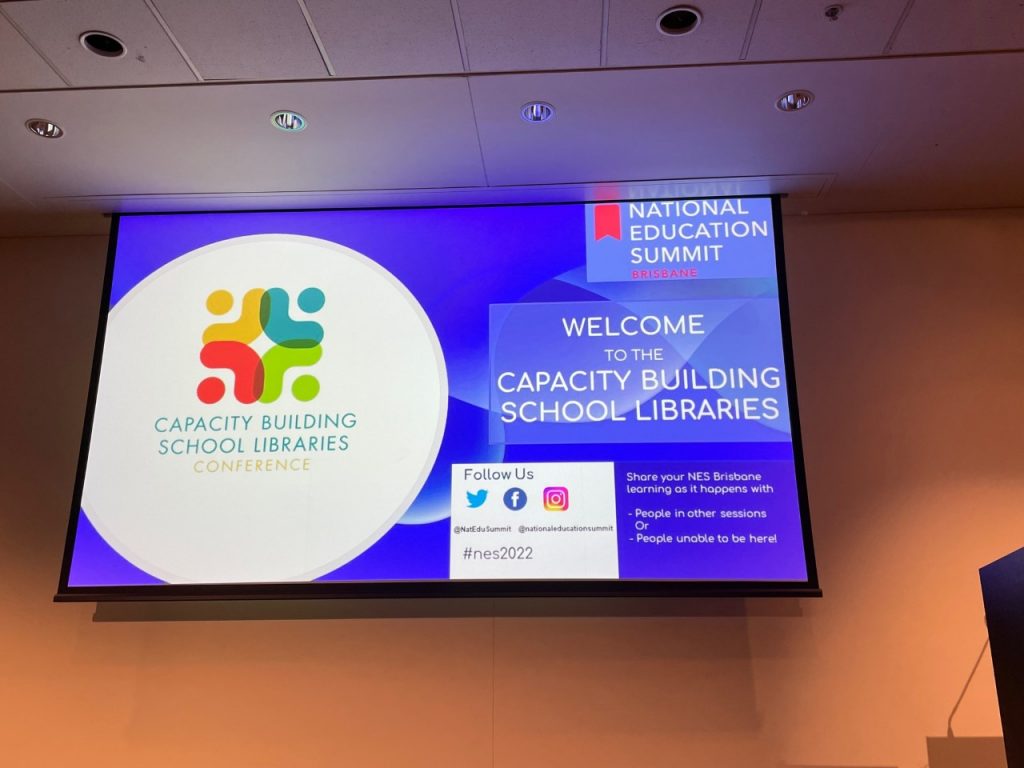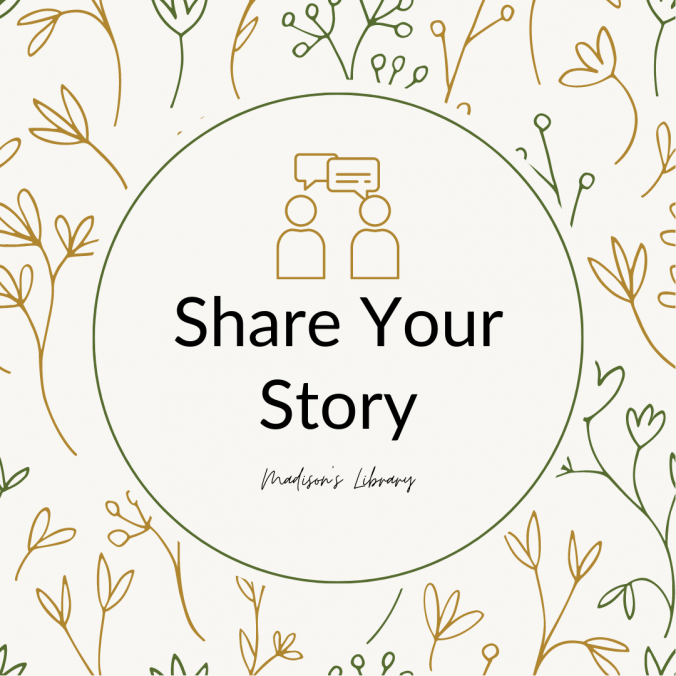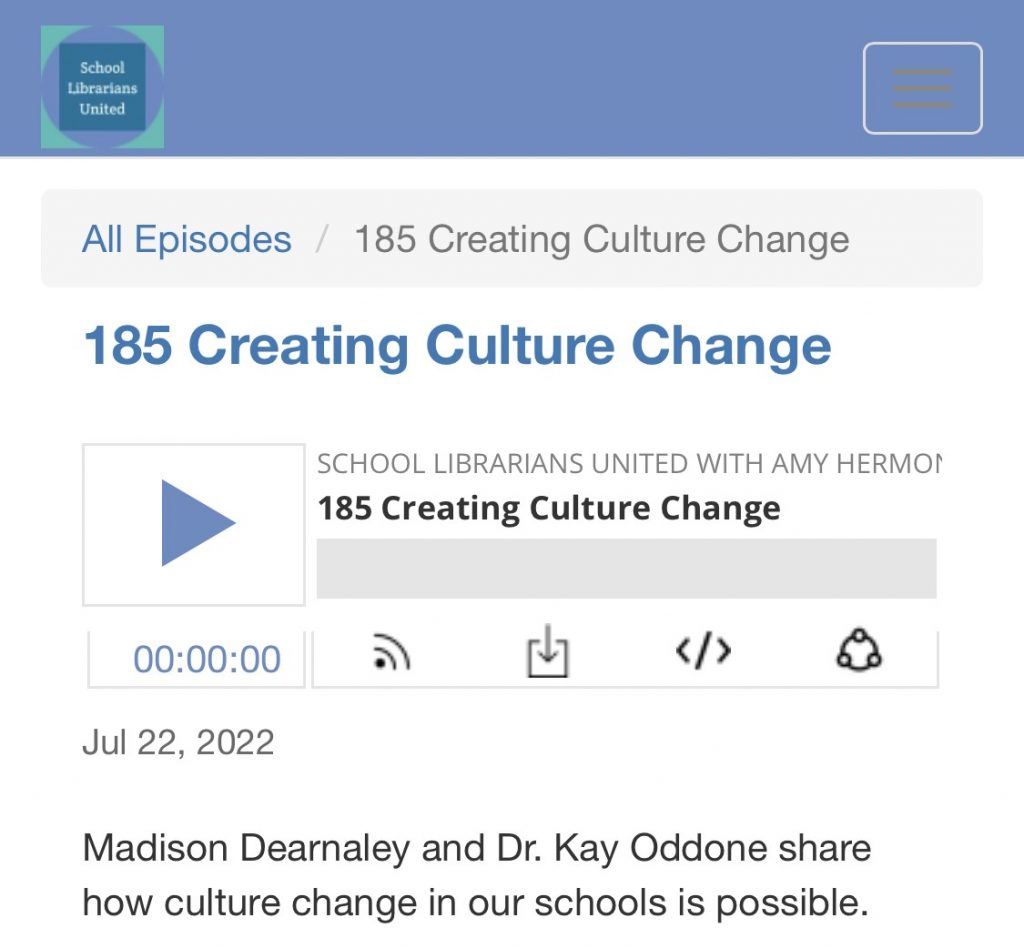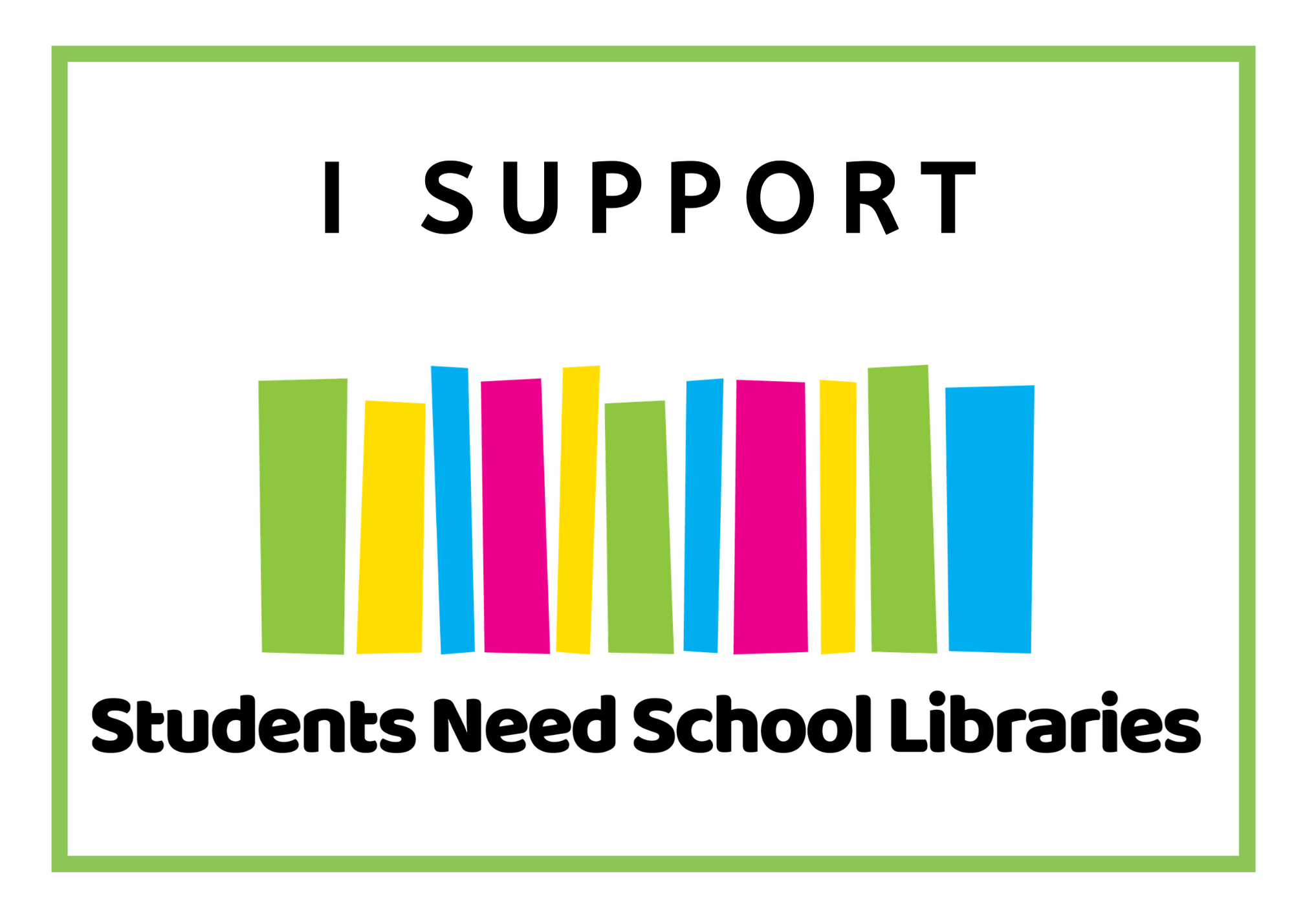Share Your Story – Sharing Your Knowledge and Experiences of Working in a School Library
I love writing and talking about my work in a school library. You might have already guessed that… When I was presenting at the National Education Summit in Brisbane earlier this year, I had a number of conversations with the other attendees. They shared with me their incredible stories of what they had done to fight for their school library, turn it into a beautiful and welcoming space, or make changes to update and renew it. They also shared with me that they didn’t see themselves or their story reflected in the people on stage. The presenters were predominately teacher librarians from independent schools with well-supported school libraries. Not the case for many of the attendees.
I put the invitation out to the attendees of that conference to have their voice heard, to be the ones on stage next year sharing that story and I am putting that same invitation to you – yes, you – right now. We need to hear your story, your knowledge, your experiences. Trust me, the people who get up on stage or regularly overshare in a blog (guilty), are not the ones who know more or have it all together. We are just sharing our experiences in the hopes that it helps someone else. Sharing your story is just as – if not more – important and valuable.
If you have never shared your story of working in a school library, I invite you to consider if now is the right time. And I am offering to help you.
Why share
I post a fair bit about advocacy. At the National Education Summit the incredible Karen Bonanno spoke about the power of story in advocacy. Sharing your story helps spread the word about school libraries, about what you do and what your role entails. It shares the benefits school libraries have for students and why they need to be well-funded and well-staffed. I know sharing can be scary. I’m someone who is actually pretty careful about what I put online. I know that sometimes it’s unsafe to share. But sharing your stories can have incredibly beneficial impacts, for your library and for yourself as a professional.

It might seem like your story isn’t worth sharing. Again, it might not seem like it, but I completely understand. Who’d want to hear what I’m doing? It’s not that great. But the power of sharing what we do doesn’t come from what we are doing being so much better than what others are doing. The power comes from sharing experiences, from the listeners taking little pieces to try themselves, putting it in their own context, gathering ideas or just hearing themselves represented in that story. One of the great things about school libraries is that they are all different. Your experiences are different from anyone else’s. They matter and I know I would love to hear them. So would so many others. Your experience – unique, individual and extraordinary, even the ordinary daily details – is what people need and want to hear.
It’s time to shake this thing up.
I love how (most) librarians love to try new things or see things from a new perspective. I love that my career has taken me through working at multiple schools and school libraries in just a short time. Seeing people do things differently and trying things in a different way is really important. I think the school library profession sometimes has a tendency to stay in one location for a long time and stick to the “usual” way of doing things. That’s why sharing our stories, your story, is so important. It’s why attending professional development is important and why visiting other school libraries is important. It’s why we need to challenge ourselves and our colleagues and the “way things are done”. It’s time to shake things up and try new things, and you can help just by sharing your story.
Getting permission
Before sharing my work I always check with my principal. When I first started my current job I let my principal know I like to share, write and present about my work and asked permission to continue to do so. I have permission to do this, following some guidelines set out for me, but when signing up for conferences or larger events, I always check in again and share what I’m planning to do. I am very blessed to have a very supportive principal who lets me do this, encourages me to share, and even promotes my work. I know that you might be more restricted. When asking, I always frame it in terms of showcasing something positive about the school and what we are doing and ensure to say I’ll include a disclaimer – these opinions are my own and do not reflect the views of the school or district. I provide a short outline about what I am sharing and who my audience is. I’ve worked in a number of schools under a number of different principals and I’ve never had a problem getting permission to share my story – they always see it as a very positive thing.
But what will I share?
Great question. Sometimes the smallest things, those daily things I do that I don’t even think about, are the things that most interest the people I talk or present to. It’s not the big picture stuff, it’s the practical things.
So, you could share anything. Maybe it’s your origin story – how you came to work in a school library. Maybe it’s what a regular day, week or term looks like in your role. Maybe it’s a few things that make your job easier – habits, software, tools, tricks you’ve learnt along the way. Maybe it’s how to cover the books in the best, quickest, neatest way. Or maybe it’s how to create new displays, celebrate Book Week in style, budget, purchase new books for the collection, check-in and connect with students, take lessons, book talk, run clubs or groups, survive lunch breaks or keep your work desk looking tidy (I could really use some tips for that last one.) I guarantee you have something to share that will help someone else.
Start with a list of things you are proud of about your work. What do you love doing? What have been some of your successes? If you had 10 minutes to show/tell your principal something, what would it be? Add down some of your strengths. What are you good at? What has someone said to you, “oh, I’d love to be able to do that.”
Now you have a list of ideas, start to group them. Are there a few that go together or fit under a similar topic?
Still having trouble? Write out a few points about what a typical day or week looks for you. I promise on that list of regular tasks are about 20 things that another school library staff member would exclaim “oh, I’d love to know how you do that.”
Keeping it professional
One disclaimer – I always share something in a positive light. I know working in school libraries can be challenging. There are lots of hurdles we have to face, but, I always make sure that what I am writing about or presenting about is shared in a positive way. This is important, as what I say reflects on my school and myself as a professional. Presenting in this way is not the time to bring up the complaints or frustrations I have – save them for a trusted colleague or private conversation.
When you write or present, you are representing yourself, your school and the school library profession and it’s important to keep that in mind.
How will I share?
Now you have a list of ideas about what you could share, you have a few options about how to share and it comes down to your preference. Are you someone who likes to write? Does the thing you are going to share lend itself to a step-by-step tutorial with pictures, videos or live demonstration needed? Are you happy to get up and present in front of a group? Now, even if you answered HECK, NO!! to that last one, don’t cross it off just yet. I’ve known some wonderful presenters who have confessed that presenting in front of people makes them feel literally sick. But they still do it. And I’m grateful because what they have to share is so important. You can work around fear, nerves and “but, I’ve never done that before.”
Here are a few ideas for how you could share your story
- Write a blog post. Don’t have a blog, that’s okay, because I do and I’d love to share your story on my blog.
- Write an article for a school library association publication, there are lots to choose from. ASLA’s ACCESS, ALIA’s Incite, one for each of the national and state organisations, School Library Journal and so many more.
- Send a picture and short summary to a school library association to share on their social media accounts. I know that groups like QSLA are always looking for content they can share or post.
- Share something on social media and tag in school library associations or groups.
- Become a panelist on a live or online conversation.
- Run a webinar. There are lots of school library association and other groups who run regular webinars and are looking for great presenters. Reach out to your local organisation or one of the companies that regularly runs the webinars you like to tune into with your ideas.
- Be a guest on a podcast. Podcasts like the amazing School Librarians United have lists of topics they’d like to feature or an open invite to reach out with your ideas.
- Present at a conference. Most conferences have submission guidelines and deadlines, so check out those on the conference’s website.
Taking that leap
Now you’ve narrowed down your options, the only way forward is to take that leap. Send that inquiry email, respond to a call out for submissions, say yes to that invite. Look for opportunities and take them.
Here’s where my offer of help comes in. If you want to write a post but are not sure where to start or where to share. If you just want to talk over your presentation idea, please reach out.
Don’t forget – you don’t have to do this alone. Invite a colleague to present or write with you. Team up with a group or do it as a library team. You’ll find lots of school library professionals to connect with on social media or your local library network.
Ready, set go
If you are writing an article or post, just start writing. Or maybe you’d like to map out your topic and heading and then write. Gather lots of photos (either from your workplace or find some CC0 images on places like Pexels). Read over it for mistakes (I tend to skip this step sometimes, whoops). Maybe have a friend read over it. If you are writing for a publication, check out their website for their style guide. This is a set of guidelines that set out the required font, formatting, referencing style and how they’d like to receive your submission. And then send it off into the world.
My process for getting ready for a webinar or presentation is to dot-point out what I want to say, put together my slides or resources and then have a few practice runs to make sure I hit the right timing. I know that some presenters need to script out exactly what they will say. They don’t necessarily read from this but the writing process helps them to prepare and make sure they cover everything they want to touch on. This isn’t my process, but do what works for you. Some presenters do read from their notes and that is totally fine, just make sure you give your reading enough life and emphasis so that it doesn’t sound too scripted. Make as many notes as you need for your presentation, but make sure they are in a format that won’t get you tripped up, lost or confused. The very first time I presented I printed my slides out along with dot-point notes for each slide and a rough timing guide for each slide, so I knew where I should be when or how to pick back up if I got lost.
The finishing touches
When sharing your story there are a few extra details to get ready. When writing for a publication or presenting a webinar or at a conference, you’ll be asked to create a bio. This is a short description of who you are. You might like to include your role, your school, and other experience related to what you are presenting about. You might also like to add a few other fun details. Keep it brief (50 words is usually fine). You’ll also need a headshot. This is a photo of yourself. I use the photo my school provides, so it is professional. You can just get a friend or family member take a photo of you. Aim for shoulders and up, a professional setting or neutral background without anyone else in the photo.
You also need to think about what resources you’ll share with your audience. Are you happy to share your presentation slides, links to other resources, or the recording of your presentation? Often, the conference, group or article you are working with will dictate this, but you’ll still have some choice and you should have your answer and resources ready to share before you submit/present.

Share
Share with your principal and leadership team what you’ve shared. It’s another great way to promote what you are doing and why the school library is so important.
I’ve always found the school library to be so warm and welcoming and sharing my story really empowering. I hope you have the same experience and really encourage you to reach out and give it a go. Need more guidance? Please do get in touch. I’d love to hear from you.




Leave a Reply